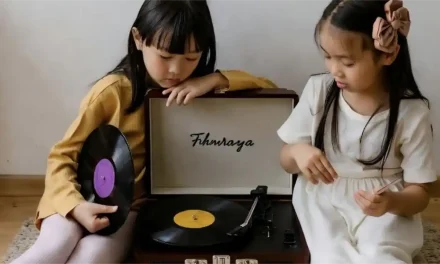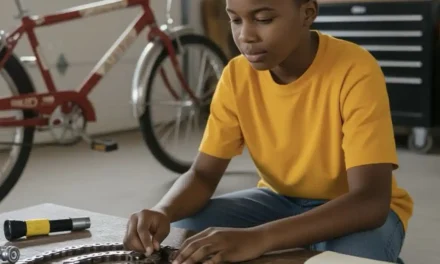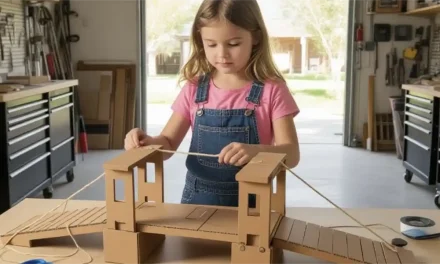
Sparking Wonder: Celebrate Their Marvels
C
uriosity begins with wonder—with the moments when a child’s mouth falls open and their eyes go wide. When they’re struck by the sight of a spiderweb or the sound of a far-off train, their brains are lighting up in the purest way. They’re seeing more than the rest of us do, because they haven’t yet been taught to look past it. These are the raw materials of lifelong learning. If you dismiss their awe, it dims. But when you meet it with your own attention, it expands.
One evening, my daughter pointed out a strange white ring around the moon. I looked up and nearly brushed it off with a quick explanation about refraction. But something about her expression stopped me. We stood there together, watching the halo shimmer behind thin clouds. I told her I’d seen it before, but never really paused to wonder about it. That was enough. Later, she researched it on her own and told me all about it. But it wasn’t the science that stuck—it was the stillness, the way her curiosity had been received with quiet respect.
If we want our children to stay curious, we need to honor the moments that draw them in. We don’t need to give them facts or lead them toward conclusions. We simply need to stay present. When your child finds a rock and says, “Look at this!”—look. When they ask why the clouds are pink, wonder with them. Ask what they think. Listen for the connection behind the question. These moments aren’t interruptions. They’re invitations to deepen attention. When you respond with presence, your child learns that their marveling matters—that curiosity is something to carry, not outgrow.
Sparking Wonder

Sparking Wonder: Share Your Wonders
Share what amazes you. Modeling wonder invites your child to explore with openness, imagination, and emotional connection.

Sparking Wonder: Encourage Their Guesses
Guessing invites playful reasoning. Support children as they make predictions, explore ideas, and learn from discovery.
Table of contents

Primordial Soup for the Mind: Navigation
Navigate the book Primordial Soup for the Mind.
TIPS
- Pause when your child is captivated by something small or strange.
- Avoid rushing in with explanations—share the moment first.
- Offer your own observations to deepen their sense of wonder.
ACTIVITIES
- Wonder Walk: Take a walk and challenge each other to find one small thing worth pausing for. Describe it without trying to explain it.
- Marvel Log: Create a simple weekly ritual: “What amazed you this week?” Write it or draw it together.
EXAMPLE
My daughter saw a ring around the moon. I almost explained it away—but instead, I stood beside her and watched. That pause taught her that wonder was worth keeping.

Download “Primordial Soup for the Mind: A Parent’s Guide to Nurturing Intellectual Growth”
Enter your information to get this article and hundreds more as part of the FREE book Primordial Soup for the Mind.
Share your thoughts with the Thought Academy community in the Comments section below.

Sharpen those skills!
Enter your information to get our FREE practice exercises so you can hone your critical thinking and reasoning skills!







0 Comments